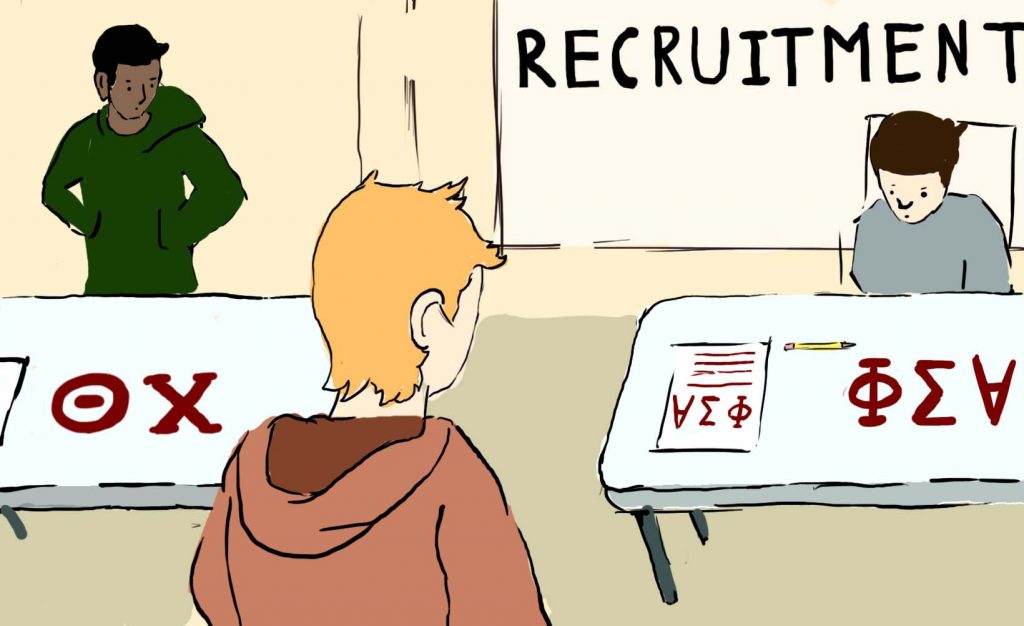Changes could be coming for Binghamton University’s fraternities, which will potentially see a more structured recruitment process this spring.
According to L.C. Coghill, director of fraternity and sorority life at BU, his office is currently working with leadership within the InterFraternity Council (IFC) to develop a new procedure for spring recruitment.
Currently, fraternities see little oversight during their recruitment process, a stark contrast to the recruitment process for sororities, which is heavily regulated. Fraternities host most of their recruiting events at their fraternity houses, which are off campus. According to Yitzhak Maurer, the president of the IFC at BU and a senior double-majoring in classical and Near Eastern studies and anthropology, the offices hope to encourage fraternities to host more rush events on campus.
In the past, there has been a correlation between fraternities hosting on-campus rush events and an increased number of new members, according to Maurer. Coghill said because of this trend, chapter leadership within the IFC asked their council leadership and the Office of Fraternity and Sorority Life for additional support and structure for their spring recruitment.
“We are currently in the process of working with both the chapter and council leadership to create a plan that both fits their needs and creates a more structured atmosphere for IFC recruitment,” Coghill wrote in an email.
However, Coghill wrote that the new spring recruitment process will not imitate sorority spring recruitment, which is a process managed by the National Panhellenic Conference.
“A more realistic option would be a recruitment process similar to what our Panhellenic organizations do during the fall semester,” Coghill wrote. “However, the decision lies completely with the IFC chapters and their council leadership and, as always, our office will work to support whatever procedural decisions are made in the best way possible.”
Delilah Chamlin, president of Phi Mu sorority and a senior majoring in philosophy, politics and law, said the additional support is favorable for both the campus and Greek life communities.
“I think that any structure Greek life is given is beneficial,” Chamlin said. “I think the frats in particular are super popular on this campus, and any means by which they are able to most effectively network and recruit young men is beneficial for our campus environment as well as our Greek life community.”
Chamlin added that the transformed recruitment process will make the BU Greek life regulations more balanced between fraternities and sororities.
“I think that the IFC has struggled to structure itself in a way that is comfortable to Panhellenic,” Chamlin said. “If they are now required to follow a certain structure, I think that Greek life will function on a much more fair playing field as opposed to the expectations and rules for Panhellenic and IFC being so wildly different.”
Ben Palmateer, president of Delta Sigma Phi and a junior majoring in music, said he was not expecting other fraternities to support the proposed change to spring recruitment.
“Most people that I’ve spoken with, at least in IFC, actually support it, which surprised me,” Palmateer said. “But I think it would at least be a step forward in the University acknowledging Greek life as an integral part of the school’s culture.”
Palmateer also said the new structure could be helpful in getting more students involved in fraternities.
“I think a lot of people hope that an official on-campus rush, or partially on-campus rush, will help us reach kids that would otherwise not know or think to participate in recruitment season,” Palmateer wrote in an email. “But that all depends on how well campus publicizes it.”



